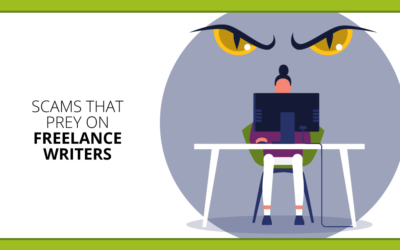
Here’s one of the big ones I got:
“When you’re still starting out as a business writer and you’re not choosy about your clients, how do you keep your brain from being fried (creative brain cells gasping for breath) when you don’t like the products you’re marketing?”
This is one of the big fears writers have about business writing: It’s going to be boring, and it will kill my soul.
That’s exactly what I thought when I got my first job reporting on businesses. It was actually all hardware-store and lumberyard businesses.
Sound boring?
I thought, “I must be out of my mind. How will I psych up to write three articles a week, all about hardware stores?”
But you know what? It wasn’t boring at all. In fact, I did five full-time years of it and they went by in a blink.
I became totally fascinated by the world of business — the egos and personalities, the money, the new ideas and products, the successes and failures.
Business, I discovered, is one big soap opera.
And behind every business is a person with a story.
I’ve never yet run into a business that wasn’t interesting in its own way.
The founder had a passion or a dream. There’s a reason they started this business, and a reason it thrived and didn’t flounder and close up shop.
Find that story, and you’ll find out how to create compelling marketing pieces for that business that you enjoy writing, and that don’t make you feel you need to take a shower afterwards.
How boring was my first client?…
I got into business writing sorta accidentally (as several people on last week’s post also reported!).
Think this is how it often does happen…some friend owns a business, and they hear you’re a writer, and ask if you could make them a flier. Or a brochure. Or rewrite their product descriptions so they don’t suck. And the next thing you know…you’re a business writer.
My story: I called on a former source to just say thanks for being a great interview over the years, and to let him know I was now freelancing.
His startup supported call-center software that monitored the headphone jockeys and gave managers data to help improve their performance.
Zzzzz…er, where was I? No, seriously. That’s what they did.
He wanted me to ghost his blog, and write some advertorial articles for his website that would indicate, in a reportorial style, why their call-center software was the best solution.
I did not honestly know what a blog was at that point. I’d only written a couple advertorials before, quite a few years back.
Didn’t know a whole ton about tech, either. It wasn’t my regular beat.
But I did know a bit about the company, so I said, “Sure, I can do that!”
(Practice saying that. You’ll want to learn and use this phrase if you are breaking into business writing.)
The secret that made it interesting
To start up the blog, I fell back on my journalism training.
I began asking questions. Like:
- Why did you start this company?
- What were you doing before this?
- How did you get into this industry?
- What is the problem you solve for customers?
- What does this product do that’s different or better than competitors’ products?
- How has the company evolved since you started it?
- What are the big issues in this industry, and what’s your opinion on them?
- What does the company plan to do next?
In other words, I learned the story of who the founder was, why this company was born, where it was headed, where he was coming from, and why it was successful.
And darnit, if it wasn’t kinda fascinating!
The CEO used to do call-center management for a major entertainment organization…and saw room for improvement. So he left his comfy corporate job to leap into the risky world of startups. Why?
It turns out call-center managers have huge problems with incompetent call-center staffers.
If you’ve ever bought something from a catalog in your life, you’re probably not surprised.
Obnoxious and/or ill-informed call-center operators cost the call centers a small fortune in lost sales.
In other words, call centers are inefficient! And this startup’s program had the potential to help them make boatloads more money.
Now, my view of this assignment totally changed from writing about call-center software, to explaining to call-center managers how they could solve a problem and make more money…and why this company was the best one to help them.
Their solution was kind of clever and cool, once you delved into it.
I had learned to like the products I was marketing… because I understood the story.
It’s not just when you start out…
Since that first client, I’ve written about hot-sexy topics including surety bonds, divorce law, and the fine points of small business loans.
For years, I had to take any decent-paying writing gig I could get, just to pay the bills.
The secret is that I made each assignment interesting and fun, because I found the story.
And if I thought I couldn’t make it interesting, or what the company did made me gut-level uncomfortable, I didn’t take the gig.
If you’re wondering if you’ve got the chops to write for business, here’s all you really need to know:
If you can ask questions, listen, find the story, and tell it, you can do this. And your brain will not fry. I promise.
P.S. Congrats to Kate who won the free ticket to next week’s Break into Business Writing bootcamp in Freelance Writers Den!









